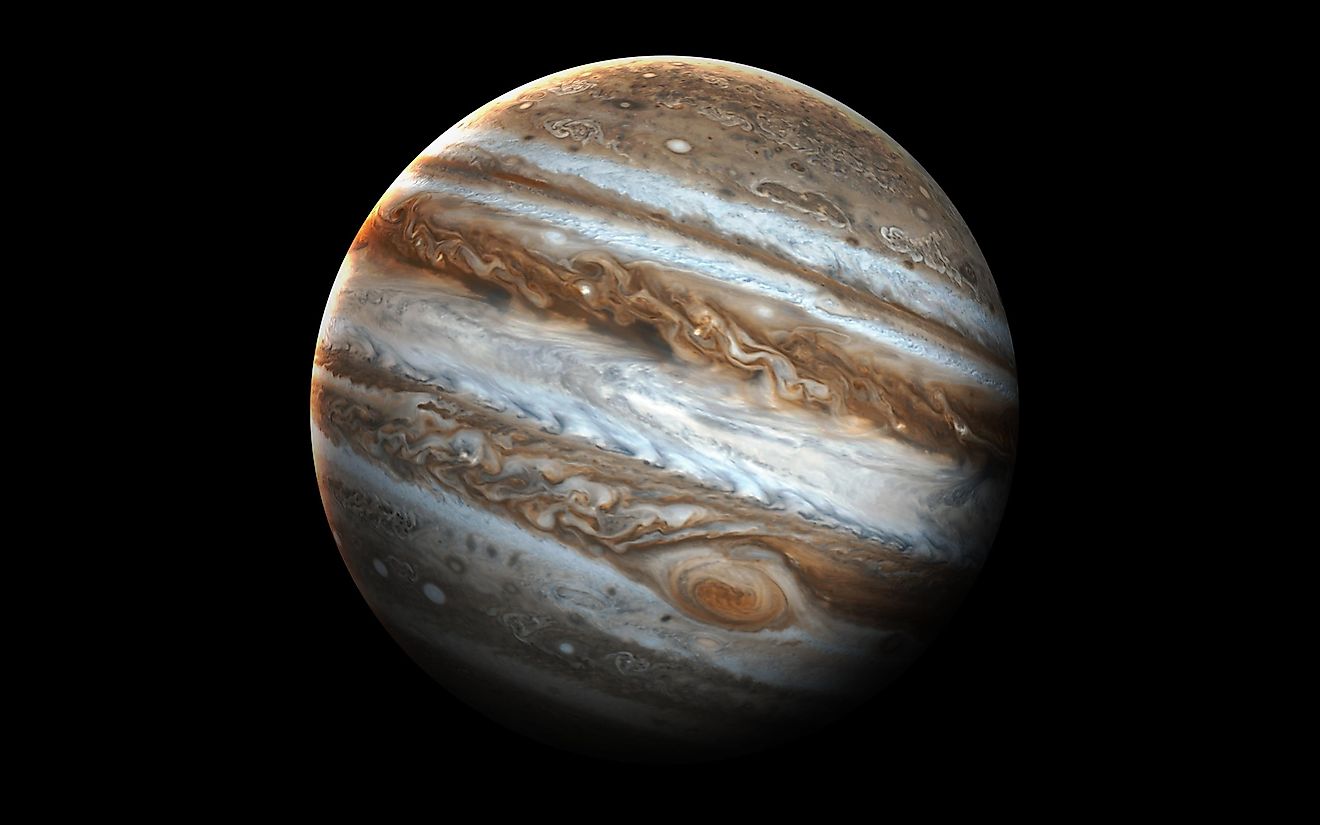Which Planet Has The Strongest Magnetic Field?

What Is a Magnetic Field?
Earth's magnetic field protects the planet from solar winds that would remove the ozone layer, and therefore expose Earth to harmful ultraviolet radiation from the Sun. This magnetic field is generated by an interaction between materials in a planet's outer core, such as molten rock and metal, and its rotation. For example, Earth’s magnetic field is generated by electric currents created by the rotation of the planet's molten iron outer core. Some planets have magnetic fields, which can vary in strength, while other planets have no magnetic field. Earth's magnetic field is categorized as moderately strong, the gas giants and ice giants have extremely strong magnetic fields, Mercury has a weak magnetic field, while Mars and Venus have no measurable magnetic fields. Jupiter is the largest planet in the Solar System and therefore has the strongest magnetic field.
Mercury
Mercury and Earth are the only planets with magnetic fields generated by molten cores. However, Mercury’s magnetic field is about 100 times weaker than Earth's. The planet is billions of years old, and researchers suspect that at one point Mercury had a magnetic field as strong as Earth’s.
Venus
Venus has no measurable magnetic field, most likely because the planet rotates extremely slowly. However, the planet’s upper atmosphere is so thick that it protects the surface from the solar wind. The ionosphere of Venus is also shaped like a comet’s tail to direct solar radiation away from the planet.
Mars
Mars does not have a conventional magnetic field generated by its core but instead has crustal magnetic fields that generate magnetism. Different parts of the planet emit magnetic charges that attract, which creates a protective dome. Although the magnetic dome is not highly effective, it is powerful enough to protect the remainder of Mars’ atmosphere.
Jupiter
Jupiter, which is a gas giant, is the largest planet in the Solar System and also has the largest magnetic field. Its large magnetic field is the result of the planet’s fast rotation, which is equivalent to 9.8 Earth hours. However, the magnetic field is not generated by Jupiter's inner core, but by its liquid metallic hydrogen outer core. Jupiter's magnetic field is so powerful that its magnetosphere is bigger than the Sun.
Saturn
The magnetic field of Saturn, which is also a gas giant, is generated by metallic hydrogen that covers a rocky core. The core is heated by the rapid rotation, which is equivalent to 10 Earth hours, and the gravity pulling liquid helium towards the center. Saturn is the only planet in the Solar System with a magnetic field that lines up with its rotation axis.
Uranus
Uranus, which is an ice giant, has a magnetic field that is more complicated than other planets. Its magnetic field tilts 59 degrees from the axis and does not run through the center of the planet. Additionally, Earth has north and south poles, while Saturn has four poles. The extraordinary tilt creates a magnetic field with inequivalent strength. Astronomers believe that the magnetic field of Uranus is not generated by its core, but in the salty ocean beneath the planet’s surface.
Neptune
Neptune’s magnetic field is similar to that of Uranus, as it tilts 47 degrees from its axis and deviates 8,500 miles from the center of the planet. The magnetic field of Neptune is 27 times stronger than Earth’s, and also changes as the planet rotates. Astronomers believe that the magnetic field is produced closer to the surface of the planet.











